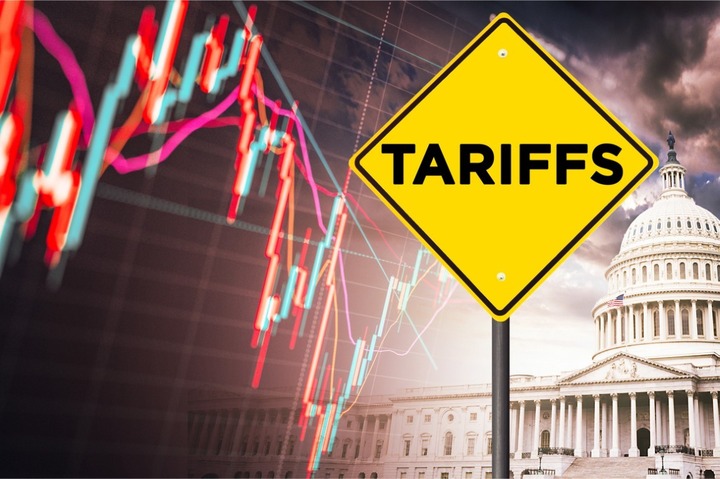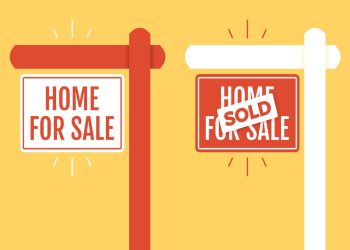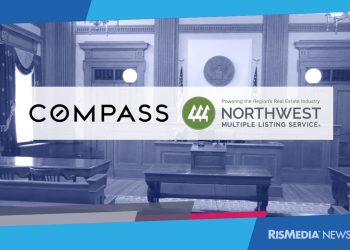On April 2, alas just 24 hours after April Fool’s Day, President Donald Trump, in an Executive Order, stated that “I find that underlying conditions, including a lack of reciprocity in our bilateral trade relationships…constitute an unusual and extraordinary threat to the national security and economy of the United States. That threat has its source in whole or substantial part outside the United States in the domestic economic policies of key trading partners and structural imbalances in the global trading system. I hereby declare a national emergency with respect to this threat.”
And so entered the word “tariffs” into virtually everyone’s consciousness. And what came next roiled economies and stock markets worldwide, along with businesses of every kind.
Just when American real estate agents thought the residential market was back to at least quasi-normal following the years of commission trials and tribulations, another potential roadblock appeared out of nowhere. Not only did Trump’s on-and-off tariffs policy whipsaw the stock market, but prices of most everything are predicted to rise.
It’s not exactly an encouraging economic climate for buying a home, which is almost always the biggest purchase of people’s lives. And mortgage rates climbing above 7% last week haven’t helped.
“What I’m hearing from clients is basically, ‘let’s cool it until this gets sorted out,’ and that’s not good,” says agent Robert Elson of Coldwell Banker Warburg in New York City. He warns that “we’re in for a very bumpy ride” as buyers think twice about their portfolios and whether they’re willing to make a sizable investment or purchase in the given environment.
“Uncertainty is always unhelpful, and our real estate market is no exception,” said Jacob Wood, a broker with Warburg. “Even people who feel good about their financial position and aren’t worried about losing their job could take a step back, thinking, ‘What if the property I want to buy now could be 7% cheaper in six months?’ That has the potential to freeze our market.”
Another potential victim of the tariffs and economic uncertainties could be fixer-upper properties.
“One area that is sure to be affected is the cost of building materials for renovations and repairs,” says Gerard Splendore, another Warburg broker. “Buyers who squirmed at the thought of a renovation will now run from the prospect,” he says.
Pam Rosser Thistle, an agent with Berkshire Hathaway HomeServices Fox & Roach, REALTORS® in Philadelphia, acknowledges that the times are challenging, but points out that there also are opportunities for people who understand that owning property is almost always a wise long-term investment.
“The current economic situation has calmed the pace of the market so that buyers can think, come back for a second look and purchase with contingencies in many cases,” she says. “Every home is different. The sales that are happening are more ‘I must move’ than ‘I want to move,’ until there is more certainty. However, it’s early. We will see how the market and buyers react in the coming weeks and months.
“Real estate is considered a solid asset with more stability than stocks and other vehicles, so some find comfort in owning real estate. We may see more people bricking up their cash for peace of mind.”
Mortgage rates have been another unpredictable by-product of the tariffs. They’re largely tied to the bond market, and there are increasing calls for the Fed to cut interest rates in an emergency session if need be.
But that wouldn’t do much good, notes Melissa Cohn, regional vice president of William Raveis Mortgage, because “an emergency rate cut could create more damage to the economy by allowing inflation to run up again. The announcement of the new tariffs has caused the equity markets to tank, and bond yields have also fallen significantly as the markets fear that the steeper-than-expected tariffs will set off a global trade war and damage the economy.”
RISMedia asked three other longtime real estate professionals nationwide specific questions about the concerns they are hearing from clients and how they advise them in these turbulent times. They are Alyssa Soto, co-founder of Powered by DMT, a luxury development-focused marketing and sales brokerage in New York and Miami; Ivan Sher, founder of IS Luxury, in Las Vegas; and Anthony Barillo, an agent with The Beverly Hills Estates, in Beverly Hills, California.
Are clients talking to you about the tariffs, and how they could affect home prices?
Alyssa Soto: I’m seeing increasing questions from both buyers and sellers about tariffs, particularly regarding construction materials and home improvement projects. Our developers have already signaled that we will need to increase pricing to offset the cost of building materials. Buyers are especially concerned about how price increases might affect new construction timelines and costs.
Ivan Sher: For the most part, wealthy and ultra-wealthy buyers and sellers believe this is a short-term financial pinch for a long-term gain. They’re cautious but optimistic.
Anthony Barillo: Many buyers and sellers are expressing concern about the new tariffs and the uncertainty they could bring, especially in terms of how they might affect property values, investor confidence and overall stability in the real estate market.
What do you tell them?
AS: I emphasize that while tariffs may increase certain costs, the housing market is influenced by multiple factors, including interest rates, local inventory and regional economic conditions. I recommend making decisions based on personal housing needs rather than trying to time the market around policy changes that have uncertain implementation timelines.
IS: While the tariffs may cause a temporary strain on the economy, we expect the cost of construction to rise, and with that, the price of new construction to go up as well. I also see the resale market mirroring those price increases. However, I expect that with the Fed selling fewer bonds, interest rates will come down, which should help offset some of those higher prices.
AB: I typically approach this by breaking the response into two parts: first, the implications for the stock market and the client’s portfolio, and second, the direct impact of tariffs on their personal financial decisions. When discussing the portfolio, I aim to temper any immediate concerns by reinforcing the importance of a long-term investment perspective. While short-term volatility can be unsettling, it’s crucial to remember that equity markets have historically demonstrated resilience and consistent recovery over time. Emotional reactions to short-term market fluctuations often lead to suboptimal decisions, so I encourage clients to stay focused on their overarching financial goals and trust in the historical data that supports long-term growth.
The second part of the conversation centers on the more immediate, personal implications of tariffs. While I do believe that diplomatic negotiations will likely prevent these measures from becoming a prolonged issue, in the short term, consumers should expect elevated prices, particularly for imported goods and raw materials. For those considering renovations, home improvements or any projects that rely on international supply chains, it’s prudent to anticipate and budget for higher costs. Being proactive and flexible with timelines or sourcing can help mitigate some of this short-term impact.
What are your thoughts about the economic picture now, with varying interest rates?
AS: We’re in a complex economic environment where inflation concerns are being balanced against growth objectives. The varying interest rate predictions create a challenging landscape for buyers trying to plan their purchases. The Federal Reserve’s cautious approach to rate cuts reflects this balancing act, leaving buyers in a prolonged period of higher-than-historical-norm rates.
IS: My thoughts on the tariffs are that they’ll hopefully be a short-term concern and the net result will be positive, both for individuals and the country as a whole. In the meantime, real estate values continue to rise, and we’re hopeful that interest rates will trend downward.
AB: The broader economic landscape feels quite volatile and fast-moving, reflecting a period of heightened uncertainty. However, I remain optimistic that we’ll see a gradual return to stability as market forces adjust. Interest rates are expected to ease over time, which should help restore buyer confidence and reinvigorate activity across the real estate sector.
Is all this uncertainty hurting the market?
AS: The uncertainty is creating hesitation in some segments of the market. Buyers who could benefit from waiting for potential rate cuts are sometimes delaying, while others are rushing decisions out of fear of rising costs. This uneven response is creating localized market disruptions rather than broad market effects.
IS: It’s too soon to tell what kind of impact this will have, but the silver lining is that we’re hoping to see interest rates decrease, which would make homeownership more accessible.
AB: While the current uncertainty has introduced some challenges to the market, such as slowing activity and cautious investor behavior, it also has contributed to a healthy correction in pricing. In some ways, this period of adjustment is helping to stabilize previously inflated property values. I’d argue that a market reset can ultimately be beneficial, creating new opportunities for both buyers and sellers who have been waiting on the sidelines for more favorable conditions.
Could tariffs actually help the housing market?
AS: Tariffs could potentially stimulate domestic production of building materials, which might eventually create more stable supply chains and pricing. In the short term, they may also create urgency among buyers who have been fence-sitting, potentially activating some of the pent-up demand we’ve been seeing.
IS: In the immediate term, tariffs will likely drive prices up, especially for construction materials, and that’s going to hurt. If this is a short-term play, the market may be able to absorb the hit. But if it signals a longer-term shift in trade policy, we could be looking at sustained higher costs that impact affordability and development. That said, with the current economic challenges we face as a country, some short-term pain may be necessary. Tariffs could be one tool to help rebalance the economy. If that strategy succeeds in creating a more stable foundation, there may be long-term upside for the housing market. But in the near term, there’s no question it adds pressure.
AB: The full impact of these tariffs remains uncertain and will ultimately depend on how global negotiations unfold. The responses from different countries, whether they choose to compromise or hold firm, will significantly influence the direction of the economy, both in the short and long term. Until the broader geopolitical and economic picture becomes clearer, it’s difficult to predict with certainty how these dynamics will affect the housing market or the economy at large.
What do you tell buyers who are worried that prices may go up fast?
AS: I’m seeing two distinct buyer reactions. Some clients are accelerating their timelines, particularly those looking at properties with significant imported components or planning renovations. Others are taking a wait-and-see approach, hoping that either the policies will change or markets will adjust and stabilize before they commit.
IS: I think we’ll see demand shift toward already well-finished homes, as the rising costs of materials and labor may make new construction or major renovations less appealing.
AB: I’ve been advising my buyers for some time that strategically purchasing while interest rates remain elevated can offer significant advantages. Higher rates tend to keep a portion of buyers on the sidelines, which reduces competition and often allows for stronger negotiating power and more favorable purchase prices. Once rates begin to decline, we’re likely to see a surge of pent-up demand flood back into the market, driving up both competition and home values. It’s important for buyers to understand that while mortgage rates can be refinanced later, the price you pay for a property is permanent, making timing and strategy key in today’s market.












